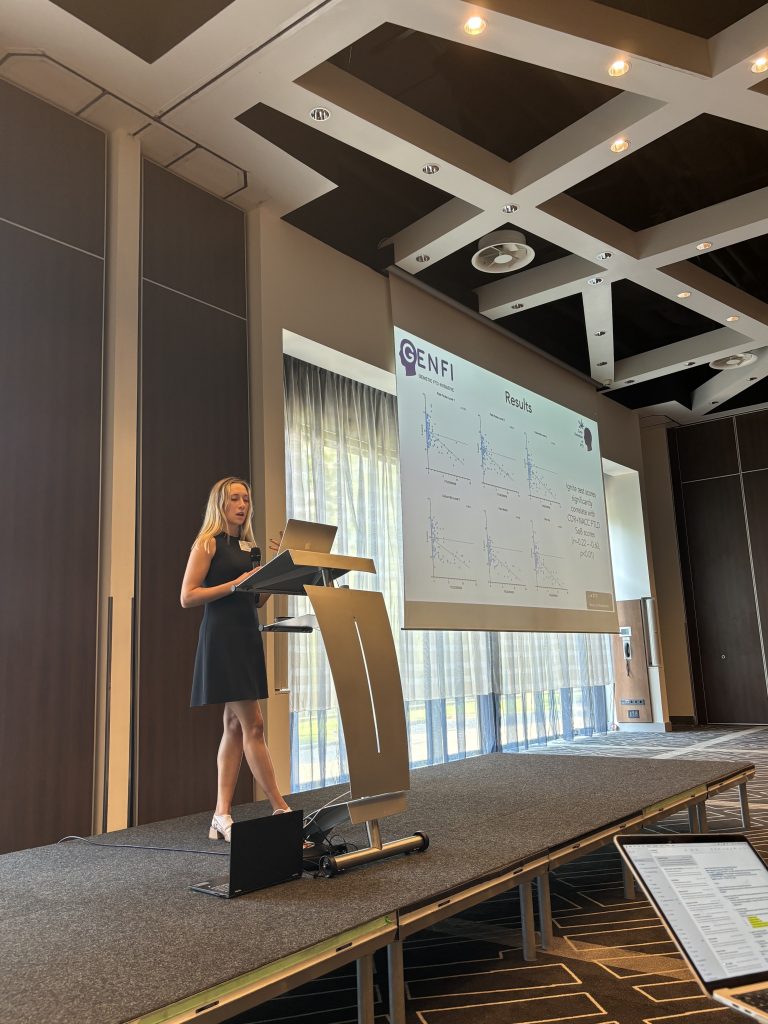On September 18, 2024, the Frontotemporal dementia Prevention Initiative (FPI) community gathered in Amsterdam, Netherlands, for its annual meeting. This global event brought together researchers, advocacy groups, and leading charities—all united by a shared goal: advancing clinical trials and therapeutic treatments for FTD.
About FPI: A Collaborative Effort

The FPI is a worldwide network focused on understanding frontotemporal dementia (FTD) and accelerating the development of treatments. This initiative is unique in its collective approach, involving researchers and patients to build a global database that supports the progression of clinical trials. While the current research primarily focuses on genetic forms of FTD—where the underlying causes are clearer—the FPI aims to expand its scope to include sporadic cases as well, ensuring that future therapeutics can benefit the broader FTD community.
The 2024 meeting kicked off with a series of insightful presentations that highlighted the progress made over the past year, offering fresh perspectives on the road ahead for FTD research. Here are the key highlights from this year’s event:
FPI Database and Genetic Research Updates
The FPI coordinators, Dr Lucy Russell (one of our Senior Research Associates at UCL) and Dr Hilary Heuer (a Senior Research Associate at The University of California San Fransisco (UCSF)), opened the session with an update on the FPI database. They highlighted the steps being taken to build a comprehensive, global registry of FTD patients, which will serve as an important foundation for future research.
Dr Rosa Rademakers and Dr Marijne Vandebergh followed with an update on the latest genetic research, emphasising ongoing discoveries in genetic forms of FTD. Their work is critical to identifying potential therapeutic targets and improving our understanding of the disease’s hereditary nature.
Digital Technologies in FTD Research: Ignite & ALLFTD Apps

Dr Adam Staffaroni and Eva Larsen (one of our research assistants here at UCL) highlighted the evolving role of technology in FTD research. They co-presented on the use of digital tools and introduced two newly developed digital applications, Ignite and the ALLFTD app, which are designed to detect cognitive changes in the early stages of FTD.
There are many benefits of using digital testing devices, including the ability to measure performance with millisecond precision. Additionally, these tools have proven particularly valuable as they enable patients to take neuropsychology tests remotely, via phone or tablet, reducing the need for in-person assessments. Overall, this innovative method both enhances patient engagement and also provides precise and potentially enhanced outcome measures for clinical trials.
Modelling Disease Progression
Dr Adam Staffaroni continued with a presentation on the FPI’s disease progression modelling efforts. He discussed the challenge of identifying when to introduce therapies during disease and the importance of creating models that accurately predict when symptoms will start. This work is fundamental for optimising the timing of clinical trials and ensuring that interventions are administered at the most effective stages of FTD.
Clinical Rating Scales for FTD Trials
As the focus turns towards clinical trials, consistency in measurement is crucial. Dr Brad Boeve, Professor Jonathan Rohrer, and Dr Allison Snyder addressed the importance of standardising assessments of clinical symptoms in FTD. Their talk outlined strategies for ensuring reliable and consistent clinical assessments across future trials, which will be essential for generating meaningful and comparable data.
Personal Stories
One of the meeting’s most impactful moments came from two individuals who shared their personal experiences of living with an FTD genetic mutation and the impact it has on them and their families. Their stories provided a deeply moving reminder of the real-world consequences of FTD, highlighting both the emotional and practical aspects of the disease. The talks offered valuable insights into how upcoming trials could be better designed to meet the needs of those directly affected.
Looking Ahead: Future Trials and Research Initiatives
In the final sessions, discussions were centred around two platform trials. Dr Adam Staffaroni outlined future plans for a preliminary trial for individuals with a MAPT mutation, exploring innovative approaches to early-stage research. Dr Adam Boxer also presented exciting updates on the future plans for a trial recruiting individuals with C9ORF72 mutations. Platform trials offer a dynamic approach by allowing multiple treatments to be tested simultaneously, meaning fewer individuals would need to receive the placebo drug. These trials, therefore, have the potential to accelerate the path to effective therapies. The talks concluded with engaging panel discussions, incorporating diverse audience perspectives on the development of these future trials. Overall, this session underscored the significant progress the FPI is making towards the development of trials for various FTD-related genes.
Conclusion: A Hopeful Future
The 2024 FPI meeting left attendees with a renewed sense of optimism and excitement. With advancements in genetic research, digital technologies, and clinical trial readiness, the FPI is making significant progress toward a future where FTD could be treated, if not prevented. This collaborative effort, fuelled by the insights of both researchers and patients, continues to push the boundaries of what is possible in the fight against FTD.
If you would like to know more about the FPI and their work, check out the FPI website: https://thefpi.org/

Sophie Farley, on behalf of the FTD talk team.
Keep up to date on all things research by following us on Instagram and X (Formerly Twitter) – @FTDtalk / @GENFI1

